
In the latest round of action on bills, Virginia Gov. Glenn Youngkin signed 100 bills passed by the Virginia General Assembly, including one to protect Virginians from unlawful discrimination, hate crimes and antisemitism. The governor vetoed four others, including one to create civil penalties for shop owners who fail to advertise they are selling invasive plants that could harm other species.
Among the 100 bills signed is a measure that will codify a recommendation by the Commission to Combat Antisemitism that Virginia revise its laws to better protect Jewish citizens from hate crimes, along with Muslims, Sikhs and other ethnic-religious groups.
Youngkin said the legislation aligns with one of his top priorities: combating antisemitism.
“As the first state to weave religious freedom into the fabric of our nation, Virginia is leading once again and sending a clear message that Virginians should not be the victim of a crime simply because of their religion, race, or ethnicity,” the governor said in an April 2 press release.
Sen. Bryce Reeves, R-Spotsylvania, and Del. Dan Helmer, D-Fairfax, carried the legislation, Senate Bill 7 and House Bill 18.
“I’m thankful for the governor’s signature and the bipartisan co-patrons of this important bill,” said Reeves in a statement. He added that legislation outlawing antisemitism isn’t just about protecting a particular group, but about “defending the fundamental values of equality, justice, and human dignity for all.”
Helmer, a descendant of Holocaust survivors and a Jewish man whose children “confronted antisemitism” in school, Helmer said the legislation is important to him.
“Hate has no place in our communities,” Helmer said in a statement, adding that he is grateful for the governor’s signature to “protect people of every ethnicity across the commonwealth.”
Other interesting pieces of legislation the governor signed into law include House Bill 143, which directs the Virginia Department of Transportation to create a publicly-accessible utility work database and map that details projects within state-maintained areas, excluding emergency maintenance and services to private properties. Another measure, House Bill 322, will create a Cosmetology Compact, which will allow people to be licensed to provide barbering, hair styling and other cosmetic services in Virginia and other states that join the compact initiative.
Vetoed legislation
The governor also vetoed four bills that would have required the state to adopt model public education policies on climate change and environmental literacy, permitted college instructors to request non confidential garnishment data for research purposes, and created penalties for shop owners who fail to identify invasive plants they sell.
In explaining why he rejected the bill on adopting model policies for climate change, the governor said the measure is already included in the Standards of Learning for students, and the proposal “imposes a significant and redundant task” on the Department of Education and the Board of Education. Read More
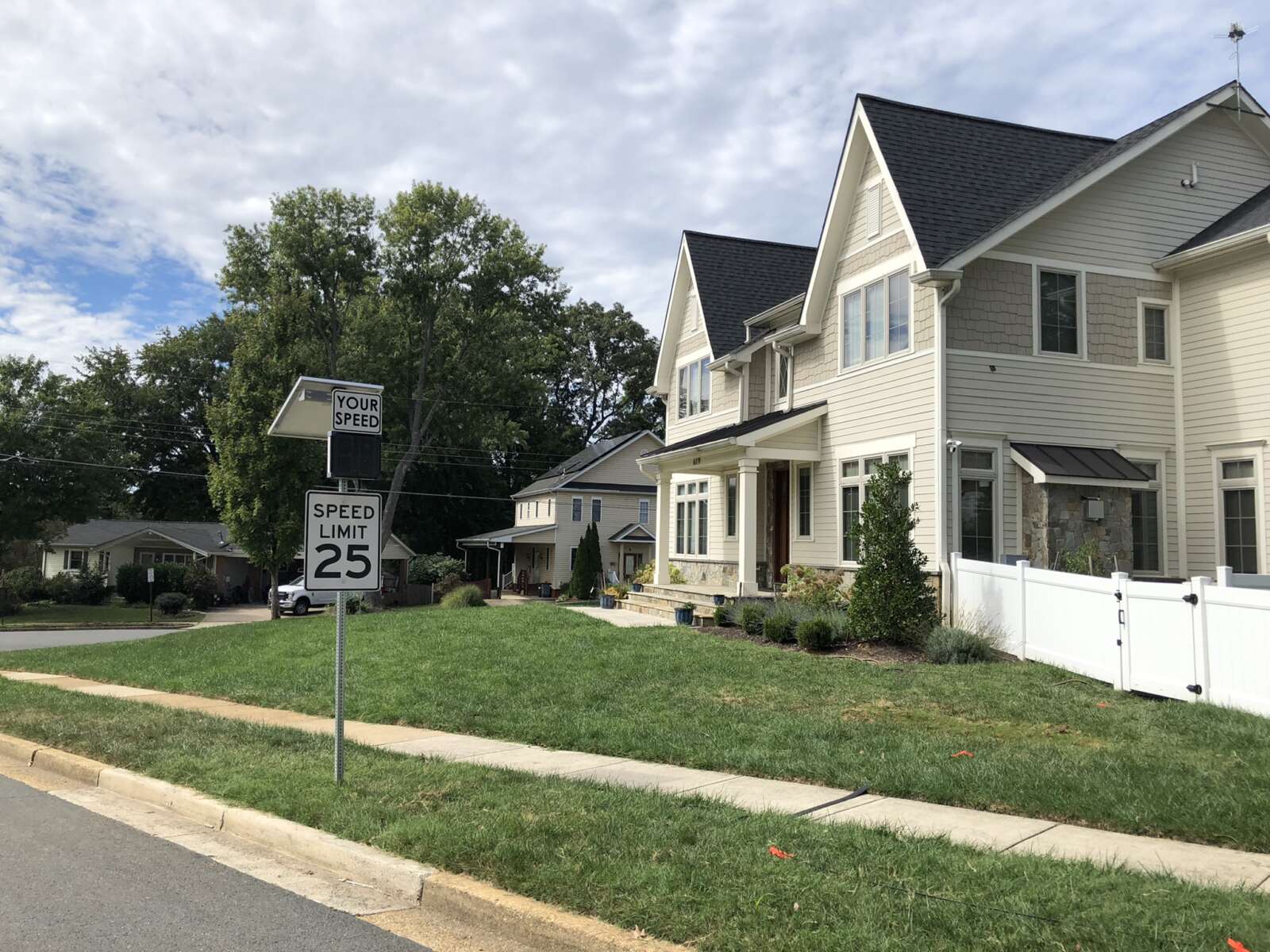
The Virginia General Assembly passed a measure three years ago allowing local governments to decrease roadway speed limits in their localities to as low as 15 mph. But recently, lawmakers found that the Virginia Department of Transportation denied seven of eight speed limit decrease requests, because, by state law, only the Commissioner of Highways can authorize changes on state-maintained roads.
Earlier this month, legislation advanced that would expand a locality’s speed-reducing authority to roadways within a business or residence district, including state-owned highways.
The number of requests represent a small fraction of the local governments in Virginia, including the 190 towns and 39 independent cities in the commonwealth, according to data from the U.S. Census. For the localities that are seeking to reduce speeding, though, the limits of the 2021 legislation are a challenge.
“Everybody can concede that there’s an issue here, but we have very little authority to do anything about it,” said Mayor Roger Vance, who represents the Town of Hillsboro, which was denied their request to lower the local speed limit to 20 mph last year.
The 2021 legislation did not extend localities’ speed reducing power to state-owned highways, which typically run through some towns like Middleburg and Hillsboro.
As proposed, the new bill would require local governments to conduct engineering and traffic studies as part of any effort to change the speed limit, post “lawfully placed” signs showing the reduced speed limit and notify the commissioner of the change.
The bill nearly failed in the Senate in February after Lt. Gov. Winsome Earle Sears split a tie vote, but it was reconsidered successfully and sent to Gov. Glenn Youngkin for approval.
Del. Betsy Carr, D-Richmond, the legislation’s sponsor, said she is working with the governor’s administration to ensure Youngkin signs her bill into law, but it could require an amendment.
Representatives from the Virginia Municipal League and Virginia Association of Counties, representing local governments in the commonwealth, said their members supported this bill.
“We firmly believe that this enhanced authority serves as an invaluable addition to our existing toolkit for implementing crucial safety measures,” said James Hutzler, government relations associate for VACO, in a statement. “With this legislation in place, counties will be empowered to take proactive steps towards safeguarding the well-being of our communities.” Read More
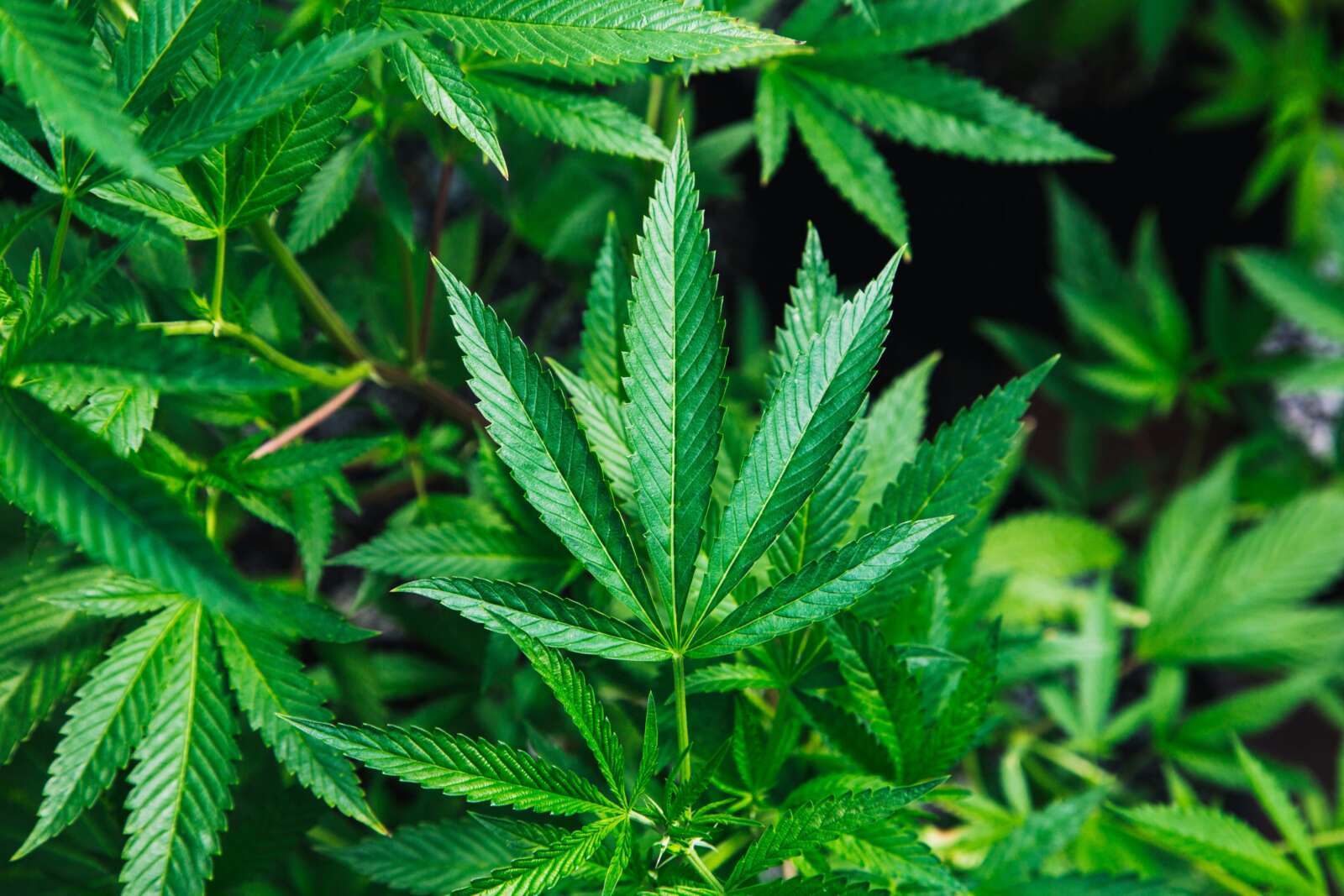
Hopes that Gov. Glenn Youngkin might sign a bill legalizing retail sales of marijuana in Virginia faded fast this week as Democrats blocked one of the governor’s top priorities: the plan to bring a professional sports arena to Northern Virginia.
As recently as Wednesday, according to multiple Capitol sources, the cannabis bill was being raised in closed-door budget talks with the governor as one of several Democratic priorities that could conceivably have been part of a package deal with the arena.
But the prospects of a grand policy bargain appeared to collapse Thursday as Democrats revealed a budget proposal without Youngkin’s arena plan, prompting the governor to say he was less inclined to look favorably on Democratic priorities. In a news conference (link added by FFXnow) on the Capitol steps, Youngkin said the arena deal Senate Democrats rejected involved up to 30,000 jobs and $12 billion in economic impact.
“And, bluntly, you want to talk about putting a cannabis shop on every corner?” Youngkin said. “I don’t quite get it.”
The governor said several other topics had been part of an “overall discussion” with Democrats. However, he suggested the rejection of an economic development project that could’ve drawn bipartisan support isn’t going to make him more likely to approve bills that passed mostly along party lines.
“I think this really sets us meaningfully back,” Youngkin said.
Del. Paul Krizek, D-Alexandria, a key sponsor of the marijuana proposal, said hopes for the bill were not high.
“As those great philosophers Tommy Chong and Cheech Marin would say, ‘It’s up in smoke,’” Krizek said.
Senate Majority Leader Scott Surovell, D-Fairfax, pointed to Youngkin’s comments on cannabis as evidence that it’s the governor who’s refusing to budge on issues that have popular support.
“He just basically flat out said one of our biggest priorities he’s not willing to consider,” Surovell said. “This governor wants to set the terms of every single negotiation as if he’s the sole arbiter of what’s reasonable in a bipartisan environment. That’s just not how it works. … If he wants something, he’s got to give us something.”
Youngkin can’t veto the marijuana bill immediately, because it technically hasn’t been sent to him yet. After this week’s developments, it may only be a matter of time. Youngkin said again Thursday that he doesn’t have “any interest” in greenlighting a retail marijuana market during his four-year term.
He has just under two years remaining, and if Democrats retake the Executive Mansion in 2025, the bill sent to Youngkin this year could potentially be the starting point for future legislative efforts. Read More
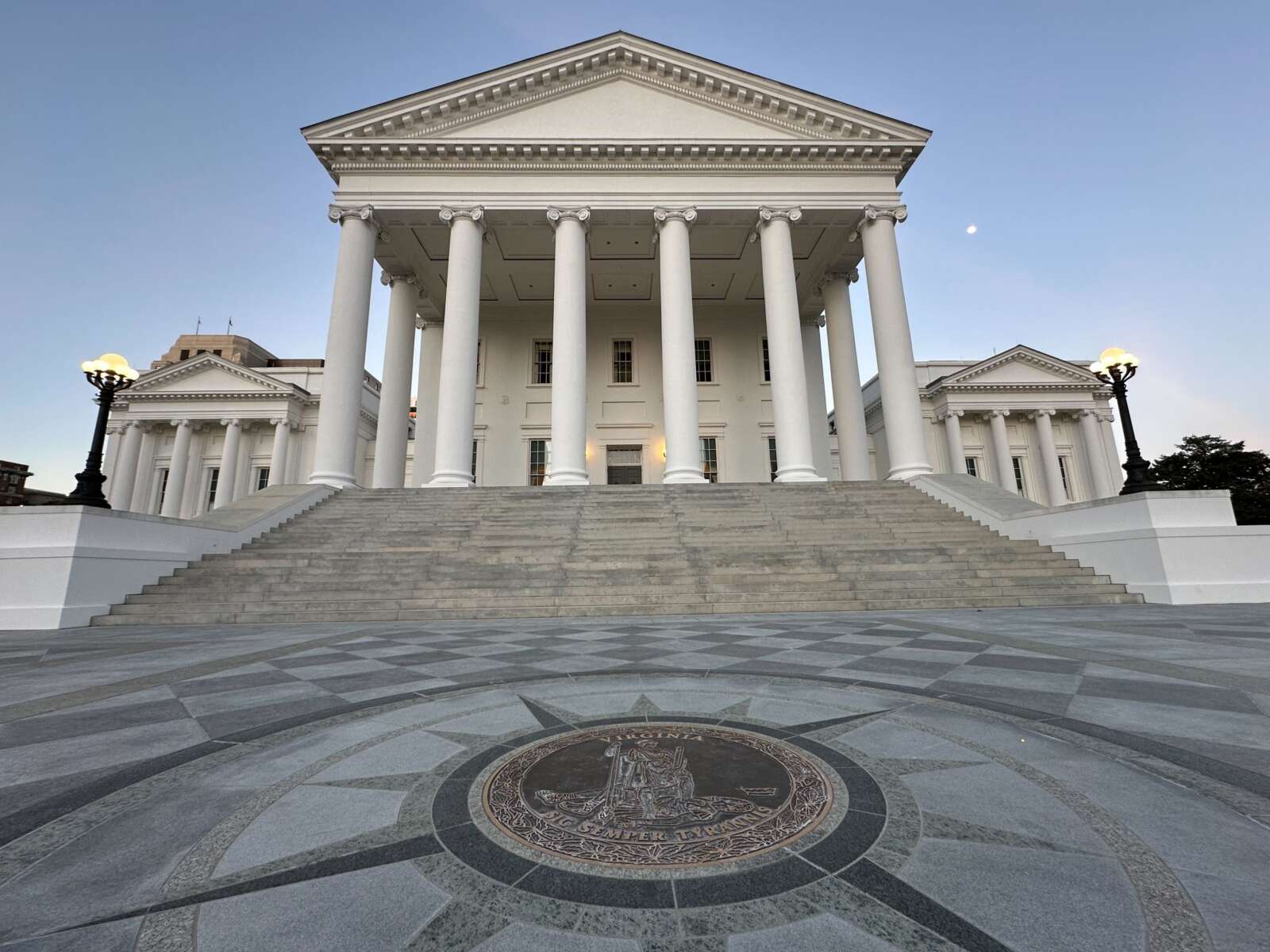
Without taking a recorded vote, a Virginia House of Delegates committee on Wednesday [Feb. 27] again blocked legislation that would bring the state in line with the rest of the country by banning the personal use of campaign funds.
By a voice vote, the House Appropriations Committee chose to continue the bill until the 2025 General Assembly session.
“It is our hope that during the course of the 2025 session that both Senator Boysko and Delegate Simon will be able to come back to us and bring us a piece of legislation that not only do I want to see passed out but the speaker would like to see passed out as well,” said House Appropriations Chairman Luke Torian, D-Prince William.
He was referring to Sen. Jennifer Boysko, D-Fairfax, and Del. Marcus Simon, D-Fairfax, who were spearheading efforts (link added by FFXnow) to craft a law that would clarify campaign funds have to be used for legitimate political activity and cannot be used on personal expenses such as mortgage payments, school tuition, vacations, clothing and cars.
Torian’s committee did not docket Simon’s bill earlier in the session. Boysko’s bill had passed the state Senate 35-4, and Wednesday’s hearing was a do-or-die moment for her version as lawmakers prepare to wrap up the session [this] week.
Del. Mark Sickles, D-Fairfax, said he would “reluctantly” second the motion to punt the bill to 2025.
The proposed ban, which has been blocked for years, is pitched as a basic good government measure that would prevent politicians from funding their personal lives with money given to them by corporations and wealthy donors.
Previous promises to work on the issue at a later date haven’t been borne out.
In 2021, the General Assembly created a special subcommittee to study campaign finance reform, and the personal use ban was considered one of its top priorities. That subcommittee barely met in 2021. The legislature re-upped it for another year, but the panel never held a meeting in 2022.
The subcommittee — which never produced a final report — is now listed as inactive.
This article was reported and written by the Virginia Mercury, and has been reprinted under a Creative Commons license.

Two Virginia lawmakers are proposing sweeping measures to improve the state’s provision of special education services as criticisms from parents and the federal government over Virginia’s compliance with the Individuals with Disabilities Education Act continue.
Sponsored by Del. Carrie Coyner, R-Chesterfield, and Sen. Barbara Favola, D-Arlington, the proposals would create a statewide system to oversee the development and use of individualized education programs (IEPs) for students with special needs, require more training for educators about how to provide inclusive special education instruction, set up eight regional “special education parent support centers” and provide additional specialists to divisions.
“It’s no secret we are failing our students with disabilities in Virginia,” said Coyner during a Jan. 30 hearing on the legislation.
Federal law requires states to provide all students with disabilities a “free appropriate public education.” Among the requirements of the Individuals with Disabilities Education Act is that schools must offer an IEP and that “every child should have the chance to meet challenging objectives,” according to a 2017 U.S. Supreme Court decision.
“This bill ensures that there is monitoring of this civil rights law at the state level, and it’s very necessary,” said Kandise Lucas, a special education advocate, during a recent House Education subcommittee meeting.
Virginia has almost 181,000 students receiving special education services this school year, an increase of nearly 7,000 students from a year ago. But the state has struggled to meet the demands of students with disabilities.
Virginia has repeatedly been criticized by the federal government for problems with providing special education services. A June 2020 report by the U.S. Office of Special Education Programs determined that Virginia “does not have the procedures and practices that are reasonably designed to enable the state to exercise general supervision over all educational programs for children with disabilities.”
The Virginia Department of Education disputed some of the findings, saying the federal office included “factual inaccuracies.”
However, in a Feb. 17, 2023 letter from OSEP, the office identified “significant new or continued areas of concerns” with how the state was complying with supervision, dispute resolution and confidentiality requirements in IDEA. In particular, it concluded Virginia “does not have procedures and practices that are reasonably designed to ensure a timely resolution process” for complaints and said at least five districts were not adhering to IDEA regulations.
Individual school divisions have also been faulted by federal officials. In November 2022, the U.S. Department of Education’s Office of Civil Rights found Fairfax County Public Schools, Virginia’s largest school district, had failed (link added by FFXnow) to provide thousands of students with disabilities the education they were entitled to receive during the COVID-19 pandemic.
State reviews have also echoed many federal criticisms. In 2020, the Joint Legislative and Audit Review Commission identified major shortcomings in the state’s provision of special education services, including low-quality IEPs, a lack of knowledge among educators about how to effectively support students with disabilities and shortfalls in the Virginia Department of Education’s oversight of local divisions.
Researchers who reviewed 90 randomly selected IEPs found about half lacked goals for academic progress or improved functioning, which are required by federal law. About 37% of parents believed the services outlined in their child’s IEP were only “somewhat” or “not at all appropriate.”
A third of the special education directors interviewed by JLARC said only half or fewer administrators and general education teachers in their division had the knowledge or skills necessary to support students with disabilities. However, researchers pointed out that state regulations only required “minimal” training in special education for administrators.
Overall, the report observed Virginia students with severe, less common or multiple disabilities graduated at a rate lower than those with more common disabilities. Additionally, it found a persistent shortage of special education teachers, with many school divisions relying on underprepared teachers to fill gaps. Read More
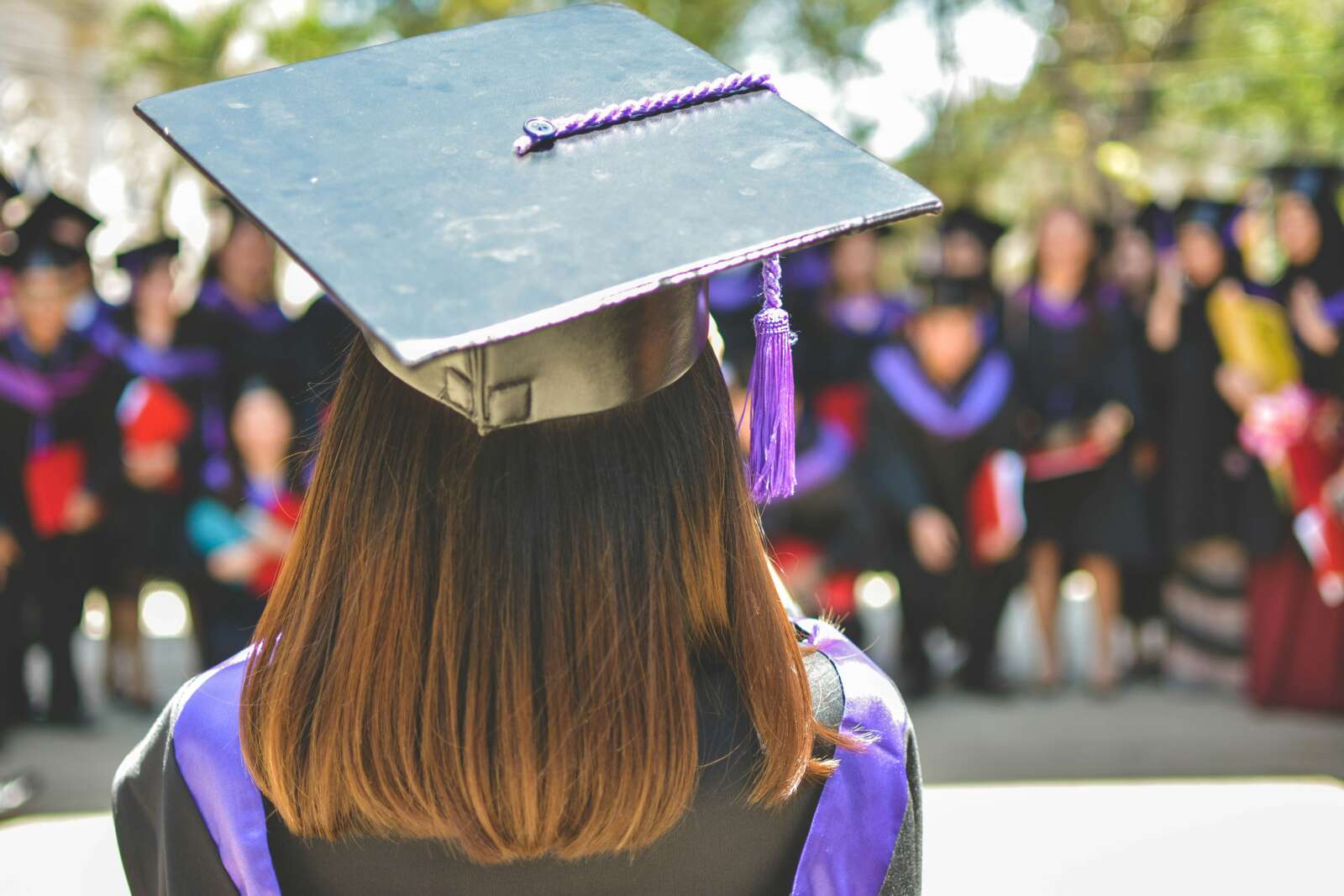
Legislation banning Virginia’s public colleges and universities from providing special treatment in admissions decisions to students related to alumni and donors is on track to head to Gov. Glenn Youngkin later this session.
On Tuesday, the Virginia House joined the Senate in passing the proposal on a unanimous vote. Both bills, which are identical, must now pass in the opposite chambers before they are sent to the governor for his approval.
Youngkin spokesman Christian Martinez has signaled the governor is likely to sign the measures.
“The governor will review any legislation that comes to his desk, but believes admission to Virginia’s universities and colleges should be based on merit,” he said.
The proposed ban comes after the U.S. Supreme Court ended affirmative action at higher education institutions nationwide in June. Since the court’s ruling that race-conscious admissions policies at Harvard University and the University of North Carolina were unconstitutional, schools in the commonwealth have begun changing their admissions policies.
A study by think tank Education Reform Now found “most beneficiaries of legacy preferences are white.” It also identified Virginia as one of five states where a majority of public colleges and universities offer admissions advantages to the children of alumni.
“All that House Bill 48 says is that in considering admissions to college and our public universities here in the commonwealth of Virginia, whether your parents went there or whether your parents are donors to the institution will play no role in deciding who is accepted to the college,” said Del. Dan Helmer, D-Fairfax, who is carrying the House bill, during a subcommittee meeting earlier this month.
Both Democrats and Republicans have supported the change.
“I think it’s absolutely discriminatory to grant special privileges to people based on what their parents did, what they gave, where they went to college,” said Del. Thomas Garrett, R-Goochland, at the same meeting.
Garrett said he’s supporting the proposal to “address discrimination and create a level playing field for all Virginians.”
Last week, the Senate version of the bill, patroned by Sen. Schuyler VanValkenburg, D-Richmond, also passed with unanimous support.
Education Reform Now says more than 100 colleges and universities have ended legacy admissions since 2015, but 787 still used the practice as of 2020.
Photo via MD Duran on Unsplash. This article was reported and written by the Virginia Mercury, and has been reprinted under a Creative Commons license.

In an attempt to stem what Democratic lawmakers say is an epidemic of guns being stolen from vehicles, the Virginia Senate passed legislation Thursday that would create a $500 civil penalty for firearm owners who leave handguns on a car seat or other areas visible to passersby.
The legislation, one of the first gun control measures put to a full vote in either chamber this year, still needs to pass the House of Delegates and is likely at risk of being vetoed by Gov. Glenn Youngkin after the session ends. Still, the issue highlights the two parties’ diverging views on how to address gun crime, with Democrats trying to reduce the number of guns flowing onto the streets and Republicans calling for tougher enforcement of existing laws.
Sen. Dave Marsden, D-Fairfax, said the bill he’s sponsoring uses a “light touch” to try to limit the supply of guns available to people who shouldn’t have them.
“We cannot have our vehicles here in the commonwealth act as vending machines for firearms,” Marsden said.
If authorities spot a vehicle with a visible handgun inside, the bill would allow them to have the vehicle towed. The law would apply to any “unattended motor vehicle” left on a public highway or public property where neither the driver nor a passenger can see it.
To illustrate the extent of the problem they’re attempting to solve, Democratic lawmakers pointed to recent statistics presented by the Richmond Police Department showing a major uptick in the number of guns stolen from vehicles in Virginia’s capital. There were 225 such thefts in 2017, according to city police, and 637 in 2022.
All 19 Republicans in the Senate voted against the bill, with the chamber’s 21 Democrats voting to pass it.
Sen. Mark Peake, R-Lynchburg, said the fundamental problem is people breaking into cars to begin with, adding that thieves could steal money or anything else of value left in a car and use the proceeds to buy a gun.
“We have to stop it at the beginning,” Peake said. “And that is by stopping people who are breaking into cars.”
Sen. Mark Obenshain, R-Rockingham, argued the bill would have no impact because he’s doubtful many gun owners are so careless as to leave a handgun in plain sight for would-be thieves. The state should instead focus on different kinds of incentives for safe storage, Obenshain said, such as a bill passed in 2023 that created a $300 tax credit to help Virginians buy gun safes and lockboxes.
“We ought not be punishing victims of crimes,” Obenshain said.
Democratic senators said the law’s passage alone would send a message to Virginia gun owners to be more thoughtful about how they store firearms in vehicles.
“Responsible gun owners ought to get in the habit of putting their gun in the glovebox,” said Senate Majority Leader Scott Surovell, D-Fairfax. “Put it in the glovebox every time they get out of their car. Just make it a habit.”
Photo via Tom Def on Unsplash. This article was reported and written by the Virginia Mercury, and has been reprinted under a Creative Commons license.

Amid a docket of new policy proposals, a Virginia Senate panel heard a familiar one Monday when Sen. Jennifer Boysko again presented legislation to require employers to list a wage or salary range in all job postings and prohibit them from asking prospective employees for a salary history.
“This is the eighth time I have introduced this legislation,” Boysko told the Senate Commerce and Labor Committee before vowing to keep reintroducing the measure until it reaches the governor’s desk.
Boysko has pitched Senate Bill 370 as a way to help remedy gender pay gaps by deterring employers from relying on prior salaries to craft future compensation. The idea is that because women in Virginia as a group still make less than men, basing salary offers on past wages could perpetuate those disparities.
“Salary history is often a reflection of past discrimination,” Emily Yen, a lobbyist for the Virginia Education Association, told lawmakers.
Last April, the U.S. Bureau of Labor Statistics reported that in Virginia, the median usual weekly earnings of women who worked full-time were 80% of what their male counterparts received. Full-time workers were considered people who usually worked 35 or more hours per week at their sole or principal job.
Women’s labor advocates have also argued requiring employers to disclose wage or salary ranges provides needed transparency that can dampen inequalities by putting male and female applicants on more equal footing in compensation negotiations.
“When employers negotiate without giving salary range information to job applicants, applicants are more likely to rely on their past pay as a negotiation reference point, which perpetuates existing pay gaps,” wrote the National Women’s Law Center in a brief.
Boysko’s legislation would not prohibit prospective employees from “voluntarily disclosing wage or salary history, including for the purpose of negotiating wages or salary after an initial offer of employment.”
Employers who violated the new rules would be subject to civil penalties of between $1,000 and $4,000, depending on their history of violations, as well as potential damages.
The Senate committee passed Boysko’s legislation on a 9-6 party-line vote after concerns from Republicans about whether the bill offered employers a right to appeal any violation determinations by the state Commissioner of Labor and Industry.
“If you’re having a penalty, you should be able to appeal it to a court,” said Senate Minority Leader Ryan McDougle, R-Hanover.
The bill was amended in committee to outline an appeals process. It now heads to the Senate Finance and Appropriations Committee for review.
Photo via Tim Gouw on Unsplash. This article was reported and written by the Virginia Mercury, and has been reprinted under a Creative Commons license.
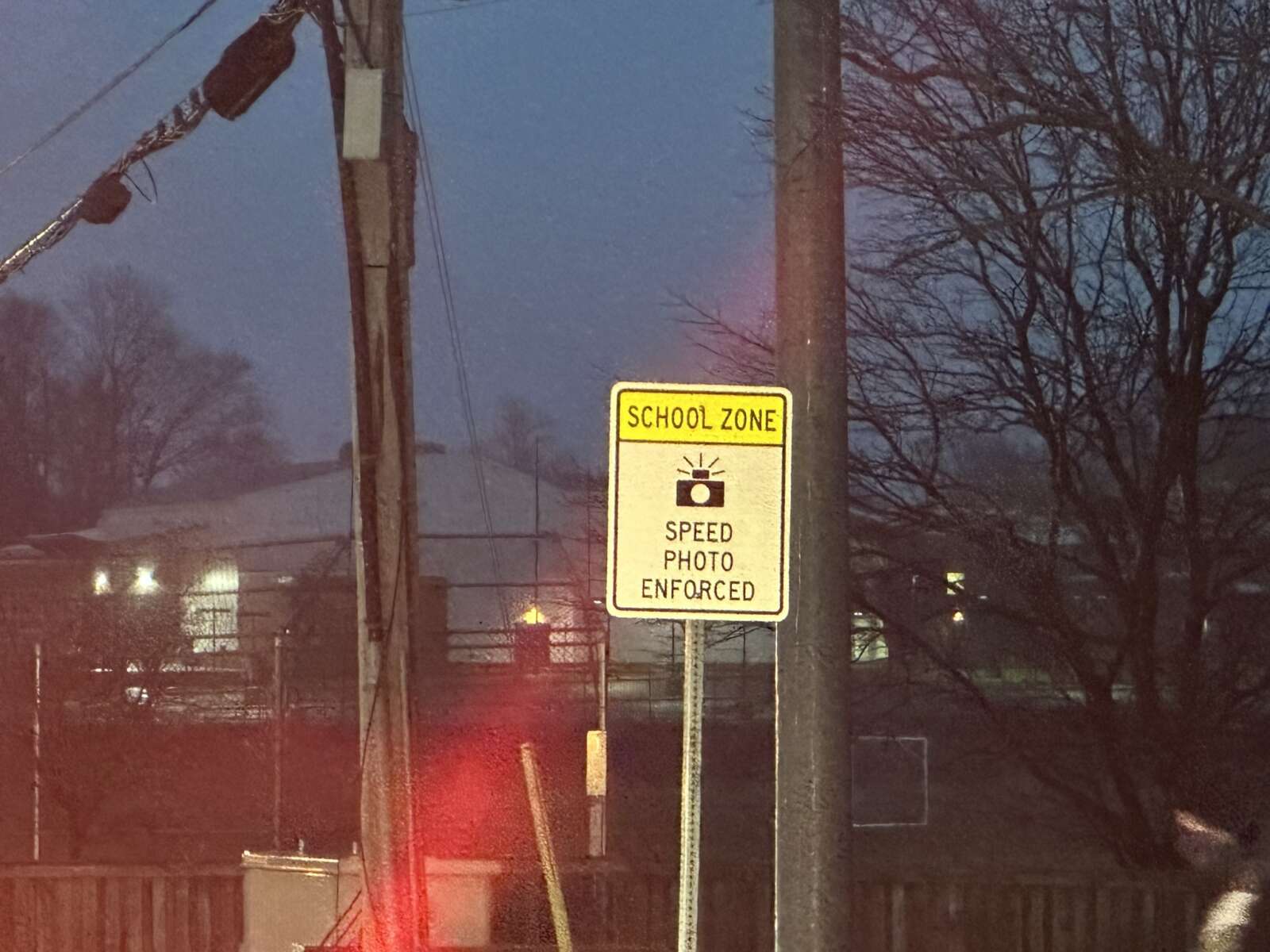
When they reconvene this month, Virginia lawmakers will consider a proposal to allow local governments to install speed cameras wherever they deem them necessary, with penalties of up to $100 for violations.
Bill patron Del.-elect Mike Jones, D-Richmond, said the legislation is intended to increase speed enforcement and reduce the number of traffic fatalities.
“It gives localities the decision of whether they want to do it or not,” said Jones. “So it’s not a ‘shall’ — every locality will have it — but for the ones that are concerned with this, it would help them out.”
State law currently allows local governments to install speed cameras in work and school zones as a way to drivers to go slower around children and construction workers. Jones’ bill would go further, allowing their placement in “any location deemed necessary” by local governments.
However, the use of more cameras to enforce speed laws has previously sparked controversy over privacy and public perceptions that the technology is just another way for a locality to raise revenue.
In November, amid a Frederick County debate, outgoing Supervisor Shawn Graber told the Mercury that “there should never be a time when a locality tries to simply put something in effect to make money from someone else’s misdoing.”
Jones said he understands the concerns, but argued people are asking for safer streets and safer neighborhoods.
“There’s not enough police for them and/or they don’t respond to neighborhoods simply because of numbers,” said Jones. “I understand the concern for the overpolicing, I get that. I get that as an African American male, I get that as pastor of an African American church, a Black legislator that represented predominantly Black and brown people. I hear that, but the reality is this: People aren’t dying in a lot of these different neighborhoods; where they’re literally dying is in mine.”
Virginia Department of Motor Vehicles data found that last year, 20% of the 122,434 crashes in the state were speed related, a 1% increase over the previous year. Virginia Department of Transportation crash data also shows that between 2018 and 2022, the annual number of traffic fatalities increased from 819 to 1,005.
The DMV said that on average, 2.8 lives are lost and 163 people injured every day because of traffic crashes.
Rob Billington, a spokesman for the Virginia Municipal League, which represents city and town governments in the commonwealth, said the league supports letting local governments expand the use of speed cameras on all roads at all times. He said traditionally VML has supported local flexibility, and it sees Jones’ bill as providing that. Read More
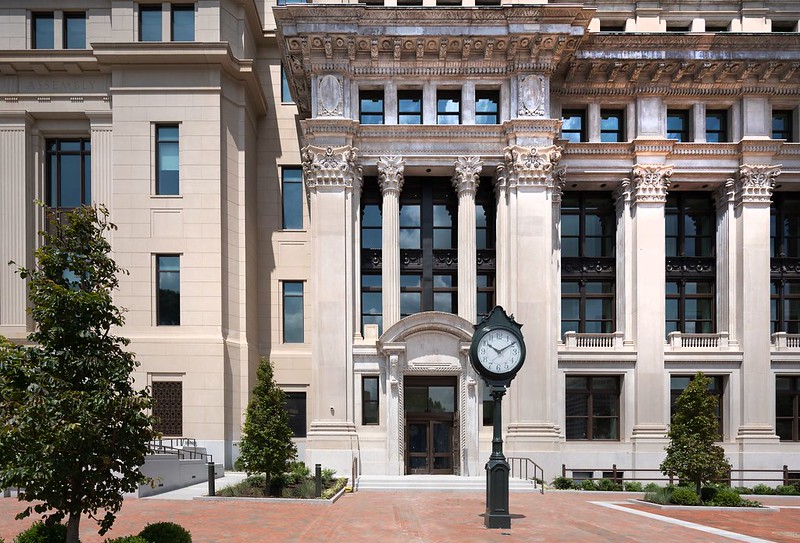
At the halfway point of his administration, Virginia Gov. Glenn Youngkin unveiled a budget proposal that calls for significant income tax cuts, increases in state sales and use tax — and a push to get rid of the car tax, which the Republican called “the single most hated tax” in Virginia.
“The car tax belongs in the trash can and not in your mailbox,” he said.
Speaking to the state’s joint money committees Wednesday morning, Youngkin reiterated his familiar themes that Virginia must take action to reverse ongoing population losses to other states and reduce residents’ tax burdens.
“Across the country today, there are winning states and there are losing states,” he said. “Virginia must compete even harder.”
But the governor’s speech took a less political tone than earlier addresses to the state’s legislative budget architects, offering fewer criticisms of prior administrations and acknowledging that Virginia government remains divided after Democrats narrowly won control of both chambers of the legislature this November. That outcome dampened Youngkin’s prospects for a presidential run and will force him to work across the aisle to achieve his key priorities.
Because Virginia operates on a two-year budget that is amended annually, the “Unleashing Opportunity” budget presented by Youngkin Wednesday represents the governor’s first crack at crafting a state spending plan from whole cloth. The last two-year budget, which was passed in 2022, was based on a plan from outgoing Democratic Gov. Ralph Northam.
With power divided between Democrats and Republicans in Richmond and historic state surpluses fueled by pandemic-era relief spending, the past few years have seen unusual levels of contention over the state budget. Amendments to the spending plan, ordinarily passed at the time the General Assembly adjourns in late February or early March, took until September this year to come to fruition as the parties bickered.
“I would ask us to deliver a budget on time when you adjourn sine die in March,” Youngkin told the money committees on Wednesday, referring to the final adjournment of the legislative session. “Virginians deserve it, and I know we can do it.”
This year, lawmakers will have less money at their disposal, with pandemic-era infusions of cash at an end and state economic officials projecting a mild recession beginning in the last quarter of fiscal year 2024.
The “overwhelming consensus” of state leaders, said Youngkin, was that in developing the budget, “we should build in caution.”
Democrats have already signaled concerns with the governor’s spending plan — and some surprise.
“I heard the governor say this was halftime. And he came back out as a Democrat, a lot of tax increases,” wisecracked incoming House Speaker Don Scott, D-Portsmouth, in an exchange with Virginia Secretary of Finance Stephen Cummings.
Senate Democrats on Wednesday afternoon issued a statement calling the governor’s budget “absolutely disgraceful” and “a slap in the face of our most vulnerable individuals.”
“We are smart enough and bold enough to know that his speech was the highlight reel and that he omitted the dirty details of his plan,” the caucus wrote. “Governor Youngkin believes that ensuring more tax cuts for wealthier individuals is most beneficial for low income individuals in our commonwealth.”
The proposal put forward by the governor Wednesday marks only the beginning of the state’s budget season. When the General Assembly convenes Jan. 10, both chambers will have a chance to modify Youngkin’s budget, removing parts they don’t like and accepting or strengthening those they do. The House and Senate will then need to reconcile their two versions of the plan — a process that historically has occurred behind closed doors through the legislature’s opaque conference committee system — and send it to the governor for his review.
“While we appreciate Governor Youngkin for sharing his budgetary vision today, it is imperative that we have a thorough examination of his proposal,” said Del. Luke Torian, D-Prince William, the incoming chair of the House Appropriations Committee. “This is the starting point to construct a budget that not only reflects our dedication, but also secures prosperity and fairness for every resident in the commonwealth.”
Here’s some of what Youngkin is proposing at the starting line. Read More

